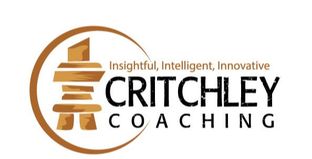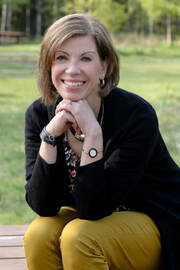
This happened to me this week. It’s given me a humbleness with which to walk this year.
I was on the Calgary C-train, heading to a dance performance. Because we are the focal point for people in our audiences, we each wear not only our red shirt, our black pants or skirt and our signature bandana in our back pocket, but we also each try to wear some kind of brighter-than-usual lipstick to brighten up our faces. I, who love a natural look, have only this year been brave enough to try a red shade. When I put it on all I can think of is that I am drawing a lot of unnecessary attention to myself. I am not comfortable with it yet, but I am determined to give it a fair shake.
As I was heading to my performance, I wore my red lipstick. The train was not crowded, I had a seat all to myself. The seat in front of me was empty, as was the seat in front of that one. At an early stop, a very nice-looking young woman boarded. She sat in the seat two ahead of me. I noticed her turn to the window and smile, pursing her lips. At first, I thought she was finding the scenery to be so pleasant as to bring a smile to her face. But as we went along, I realized she was looking at her reflection in the mirror and ‘posing’ for herself. I was mesmerized. She was lovely looking; I’m guessing in her mid-thirties. In my mind, I was debating whether she could really just be admiring herself. I thought surely she is looking at something else. But when we went through a couple of dark tunnels, made of bleak cement, and she continued to practice her poses, I realized that in fact, she was fully focused on herself – not on the scenery. To be clear, she was not show-offy, nor did it appear that she was trying to seek attention from others. She was simply very focused on her own face.
This continued the entire trip. As people got on and off, she never once looked at anyone else, or communicated with anyone else. Eventually, her stop arrived, she rose and stood by the door as the train slowed. She caught her reflection in the glass and continued her routine. Something about her behaviour fascinated me. Despite her beauty, and outward confidence, she had a nervousness about her. It was as if her fascination with herself, protected her from any possible interaction with others.
I was grateful for her; she took my mind completely off my own red lips! And she stayed in my mind off and on throughout the day.
After the performance, once off the train, I got into my car and stopped at Shopper’s Drug Mart on the way home. As I crossed the parking lot and stepped up on the sidewalk, I found myself behind a teenage girl, walking with her mother. The mother had her hand on her daughter’s shoulder as they walked. At first, I thought the mother was simply affectionate. But as I continued to walk behind, I wondered if the mother had difficulty with her sight. As I slowed, I could see that it was the mother’s balance that was the issue. I am not a medical professional, but both the idea of a stroke, and of MS, came to my mind as I observed her.
The mom had to work hard to walk and her speech was laboured. The daughter, who I am guessing was sixteen or seventeen, was helping her mom navigate the outing. The daughter was keeping up a steady stream of chatter as they walked. She told her mom about the math test result she had just received. Then she explained that they only had one unit left to finish this semester; probability. The daughter was sure she would have no trouble with it, after all, she said, it’s just common sense. The daughter seemed to understand that if she maintained some interesting conversation, it would take her mom’s mind off the challenging task of simply maneuvering through the drug store. The daughter held a beautiful balance between being completely tuned in to her mom’s needs, and never drawing attention to them. The roles are reversed, I thought; the young daughter has become the care giver.
We passed by all kinds of glass windows on our way in, and dusk was falling. The daughter could have tried to catch a glimpse of herself in the glass. I never saw her steal a glance. She remained fully engaged with making the outing easy on her mom.
While the daughter made the relationship and the outing look easy, I couldn’t help but think what a heavy load she was carrying. Teenagers are supposed to be focused on themselves. They are supposed to be figuring out how to navigate their own friendships and schoolwork; their appearance and their interests. They are supposed to be looking into mirrors and window glasses to see how they look. I don’t think the manual, if there was one, would have a chapter on how to care for, and treat with dignity, a parent with challenging needs.
I wished I could have known what to say to the young girl to let her know how impressive she was. Or at least to acknowledge her grace as she did her heavy lifting. As I drove the short trip home after my stop, the young woman on the train came back to my mind. My first reaction was to judge her; to think how the young teenager really outshone her. And then it dawned on me; the woman on the train was very likely carrying a heavy load too. Her seemingly self-absorbed behaviour may well have been born out of some feeling of ‘not-enough’. I wished I would have known what to say to her too, to acknowledge her load.
I’ll bet if I had continued to drive around and make random stops, I would have had the chance to see more people, each carrying their own version of a heavy load. Each of us carries them. Some times our loads are heavier than others. Sometimes we get a break. Sometimes we mis-identify our load; what we think is heavy and important, is, in the big picture, not heavy at all.
I arrived home, lipstick still intact. I hadn’t thought about it at all until I glanced in the mirror. I’ve decided it doesn’t qualify as a heavy load. And I’ve decided to keep in mind I have no way of knowing what is heavy for another, and that I will look for times and places where I can help carry.
My inquiry for you this week is, ‘How heavy is that load?’
Elizabeth is a certified professional Leadership Coach, and the owner of Critchley Coaching. She is the founder and president of the Canadian charity, RDL Building Hope Society. She works with corporations, non-profits and the public sector, providing leadership coaching. She creates and facilitates custom workshops for all sizes of groups. She has particular expertise in facilitating Strategic Plans for organizations. Contact Elizabeth to learn how to recognize and ease heavy loads.


 RSS Feed
RSS Feed